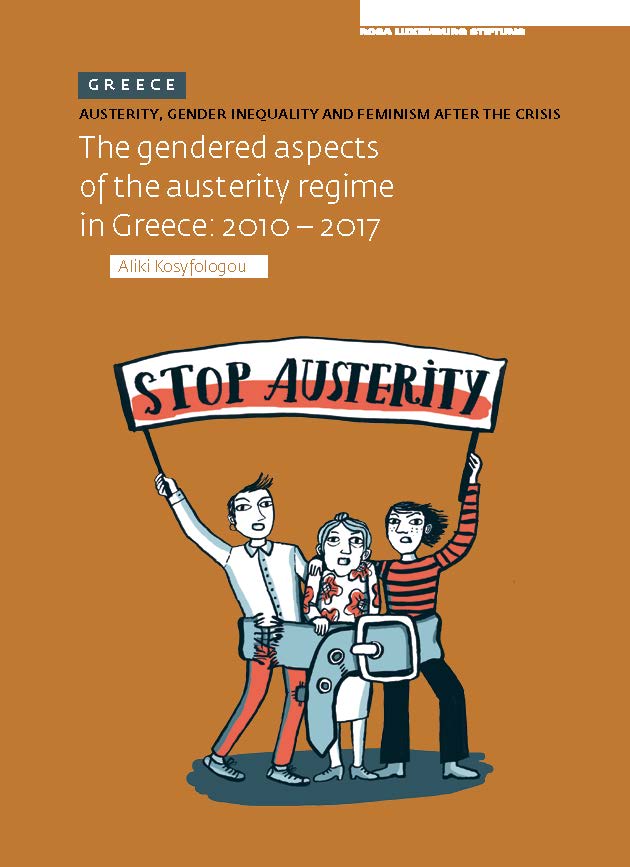This paper explores the gendered dimensions of the austerity policies implemented in Greece since 2010 in the context of the Economic Adjustment Programs and in particular their impact on the lives of women.
The national studies on the effects of austerity on women commissioned by the Rosa-Luxemburg-Stiftung are devoted to exploring these developments in more detail. Under the title „Austerity, Gender Inequality and Feminism after the Crisis“, the authors not only evaluated data on women’s levels of employment and income, but looked more closely at how cost cutting measures have directly affected equality, as well as rule changes and new regulations in the same spirit. How do savings policies affect gender roles in the family? Who takes responsibility for raising and caring for both young and old when the state ceases to provide support? What does it mean when gender equality commissioners and the support programs tied to them have their funding cut? Where do women go when there are no crisis centres available for victims of domestic violence? Who will look after unwanted children if abortion is ruled illegal?
The studies depict a topography of what effects the European austerity diktat has had on gender relations, and formulate demands for a left-wing feminist politics rooted in social justice and gender equality.
See here the Greek version of the paper on Greece.
Like all publications of the Rosa-Luxemburg-Stiftung, this booklet is free of charge. For free copies, please send us an e-mail: [email protected].
This paper is part of a compilation of studies from different European countries. You can find all of them here. In detail:
Germany (also available in German)



